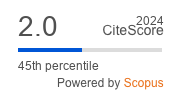Future states: design and science for sustainability
DOI:
https://doi.org/10.23726/cij.2018.765Keywords:
Interdisciplinary Innovation, Design Thinking, Service Design, Seismology, Sustainability, Sustainable Development Goals, Muon Detection, Radon DetectionAbstract
In 2017 CERN IdeaSquare collaborated with the Royal College of Art, London to explore how an interdisciplinary approach to innovation that combines science, technology, design and business might address the global sustainability challenges as embodied in the UN’s Sustainable Development Goals 2030. This collaboration examined how an interdisciplinary design led model of innovation that fuses design thinking with scientific discovery, could enable the innovative and potentially disruptive technologies from CERN to address the world’s most intractable challenges, and specifically the UN’s Sustainable Development Goals (SDG). In this paper we explore the nature of interdisciplinary innovation, recent trends in its approach, and describe the way this has been applied, through action research, to generate product service systems that address the UN’s SDGs. We describe not only the project outcomes that demonstrate the inventiveness of the CERN IdeaSquare/RCA teams, but also the new knowledge that can be applied to future interdisciplinary innovation projects
Downloads
Published
How to Cite
Issue
Section
License
Authors who publish with this journal agree to the following terms:
- Authors retain copyright and grant the journal right of first publication with the work simultaneously licensed under a Creative Commons Attribution License that allows others to share the work with an acknowledgement of the work's authorship and initial publication in this journal.
- Authors are able to enter into separate, additional contractual arrangements for the non-exclusive distribution of the journal's published version of the work (e.g., post it to an institutional repository or publish it in a book), with an acknowledgement of its initial publication in this journal.
- Authors are permitted and encouraged to post their work online (e.g., in institutional repositories or on their website) prior to and during the submission process, as it can lead to productive exchanges, as well as earlier and greater citation of published work (See The Effect of Open Access).


